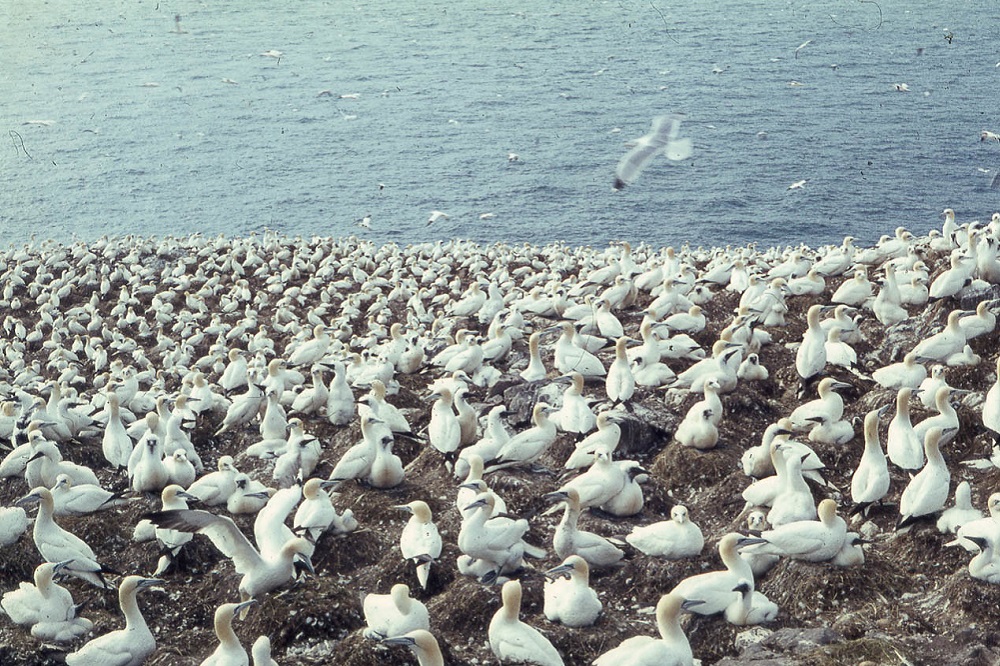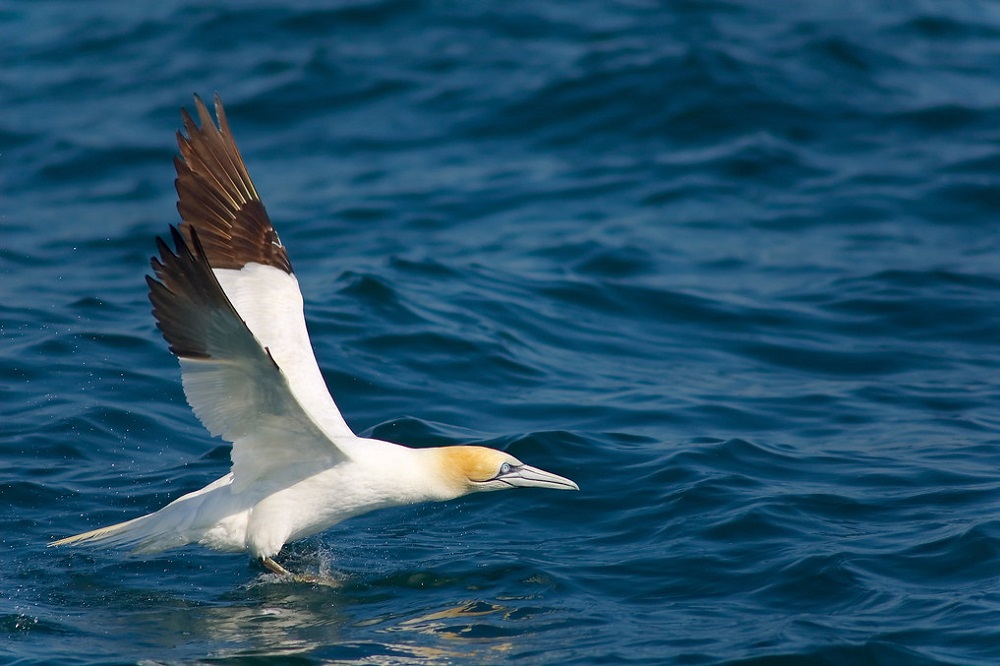Loss of half Welsh breeding population of Gannets sees them added to Wales’ Red List

A new review of breeding seabirds sees Gannets being added to the Red List of Birds of Conservation Concern in Wales for the first time.
The Grassholm Special Protection Area (SPA), a small island 11 miles off St Davids Head in Pembrokeshire, had been home to up to 34,491 pairs of Gannets in 2022. It’s one of two Gannet colonies found in Wales and was the fourth largest in the UK.
Prior to 2022, Grassholm held 6% of the world population of Gannets.
However, a census carried out in July 2023 by RSPB Cymru and funded by Natural Resources Wales (NRW), showed that the number of Gannets nesting on the island had plunged dramatically.
In 2022, 34,491 pairs were recorded on the island, but that fell to 16,482 pairs last year – a 52% reduction. The population crash was due to deaths caused by the Highly Pathogenic Avian Influenza outbreak at the colony.
Slow recovery
Anne Brenchley, Chair of the Welsh Ornithological Society said: “The addition of Gannet to the Welsh Red List shows how quickly changes in population can come about due to the spread of diseases such as HPAI.”
Rachel Taylor, Senior Ecologist BTO Cymru added: “Like most seabirds, their (Gannets) low productivity and long lives mean they recover only slowly from major challenges – and especially so in the wider context of pressures on the marine environment”.
The review, published as an update to Birds of Conservation Concern Wales in Milvus, the journal of the Welsh Ornithological Society, also confirms that Wales remains the stronghold for breeding population of Manx Shearwater, with up to 64% of the global population, which stay on the Green List.
Encouragingly, Black Guillemot moves to the Green List, due to an increase in numbers in north Wales.
Today also sees the publication of the UK Birds of Conservation Concern report, in which five species of seabird have been added to the Red List of birds, following a similar comprehensive population assessment. These include Arctic Tern (breeds in Wales), Great Black-backed Gull (resident in Wales), Common Gull (winters in Wales), Leach’s Storm-petrel (passage) and Great Skua (passage).
International importance
Alun Prichard, Director RSPB Cymru said: “Wales’ coast and islands are home to internationally important populations of seabirds. It’s painful to see some of these majestic species in decline. Today’s news acts as yet another example of why we desperately need to tackle the threats that seabirds face.”
He added: “The Welsh Government has committed to developing a Welsh Seabird Conservation Strategy – one that will hopefully provide funding for island biosecurity, a Marine Protected Area network and marine development proposals that will work with wildlife. Now is the time to put these into place, to improve the resilience of existing populations.”

Breeding seabird populations generally face a growing list of threats and pressures that include changes in prey availability due to climate change and overfishing, entanglement in fishing gear, invasive predators, disease and poorly sited offshore renewable energy development, as well as climate impacts on nesting and breeding success.
Mary Lewis, Sustainable Places – Land and Sea Manager, Natural Resources Wales said: “Alarmingly, this health check of our seabird populations suggests out of the 21 breeding seabirds found in Wales, eight species are now on the Red List with a further 11 on the Amber List. These figures represent one of the highest levels of conservation concern for a collective bird group in Wales”.
The first Birds of Conservation Concern assessment for Wales was published in 2002 and has been updated approximately every six years, with the next full assessment due in 2028.
Support our Nation today
For the price of a cup of coffee a month you can help us create an independent, not-for-profit, national news service for the people of Wales, by the people of Wales.





